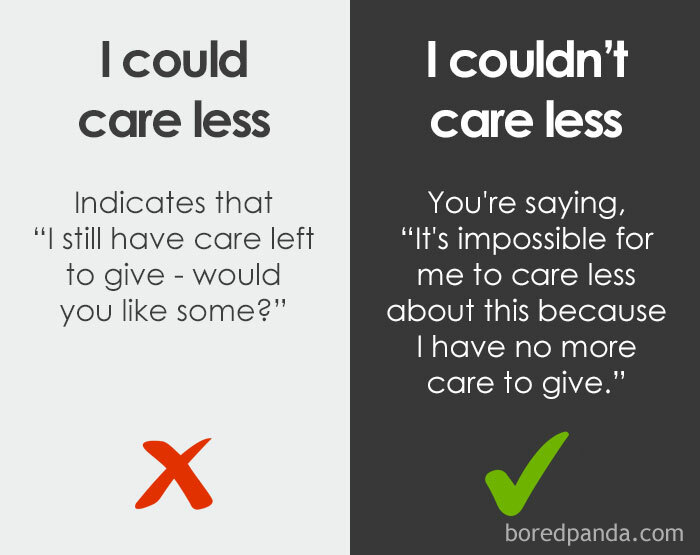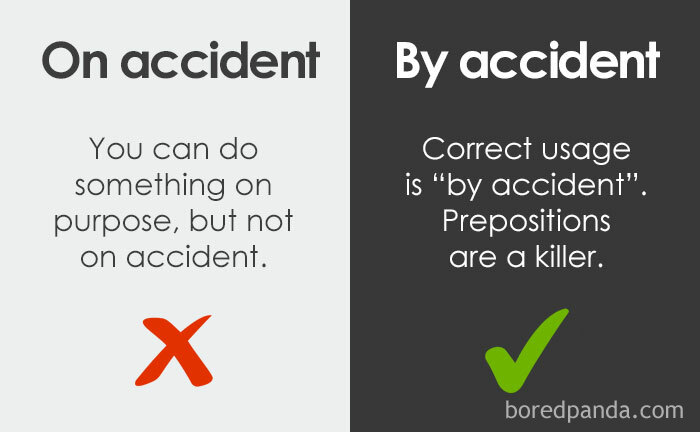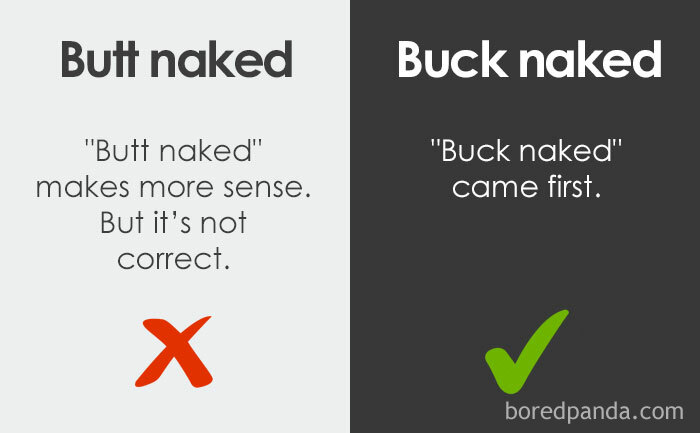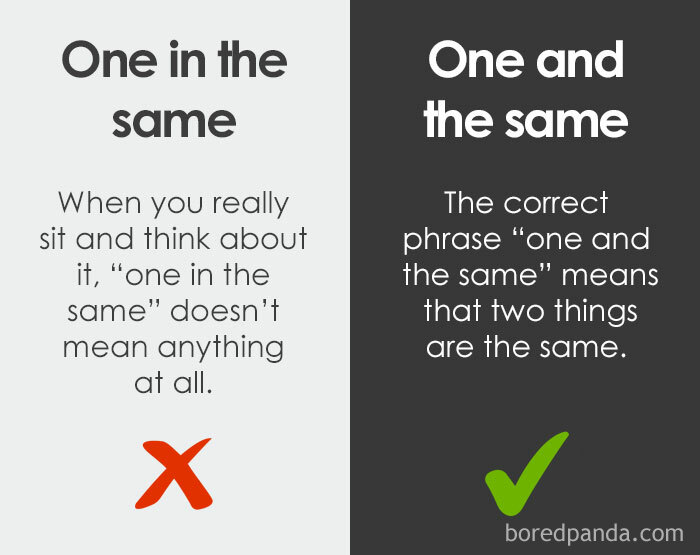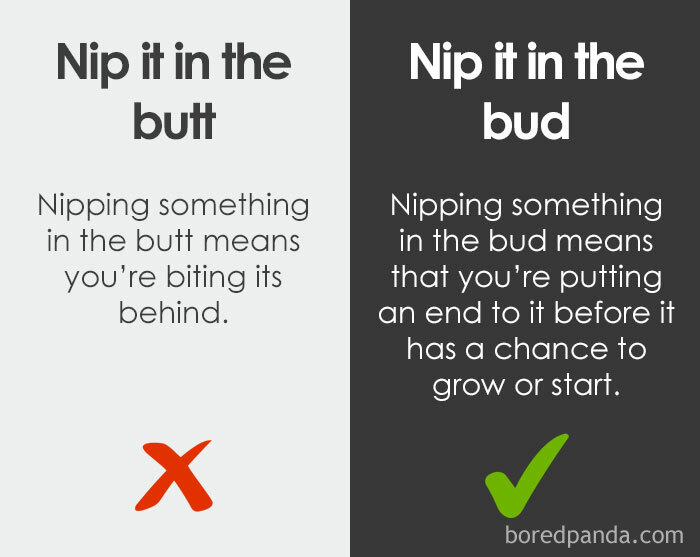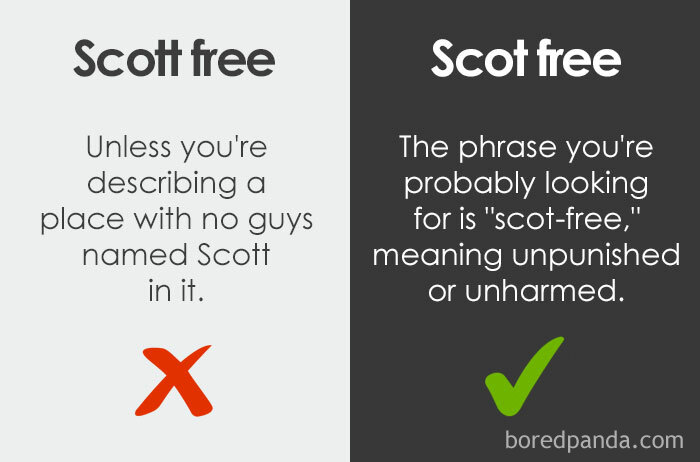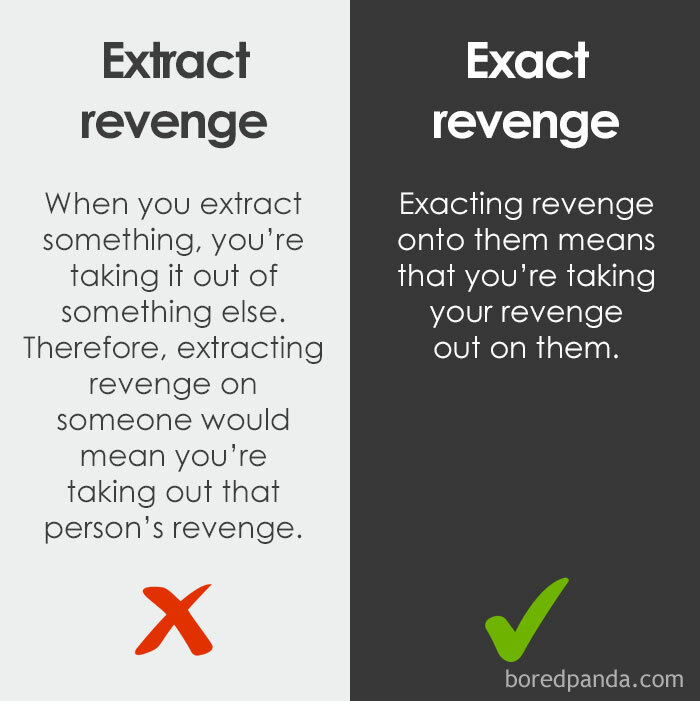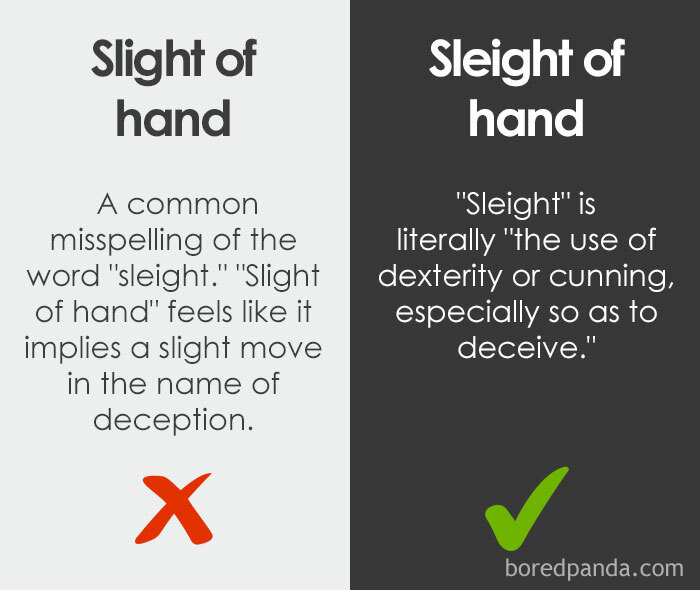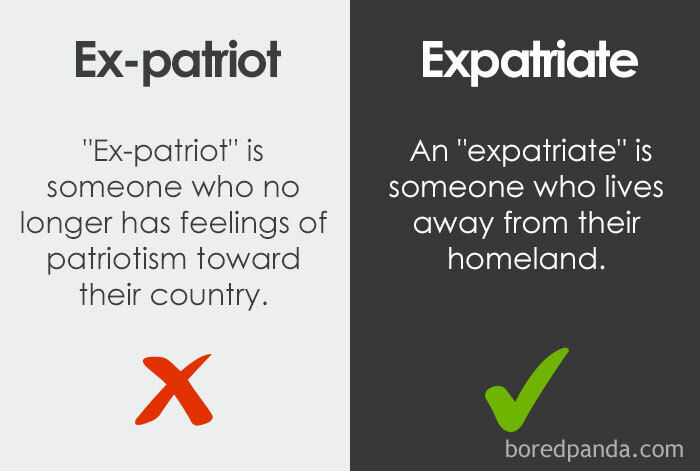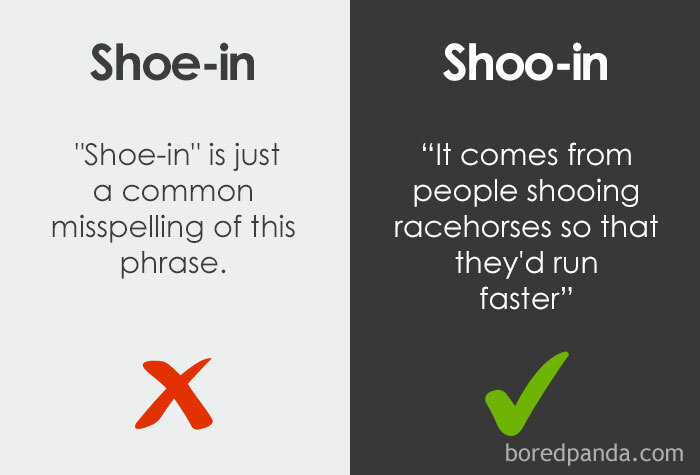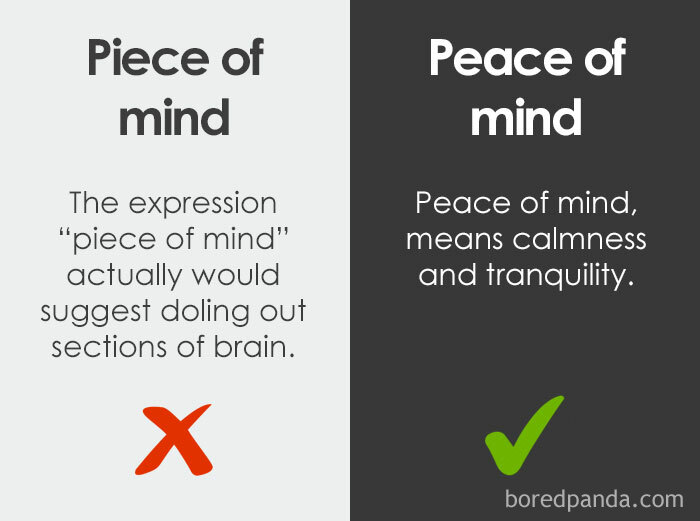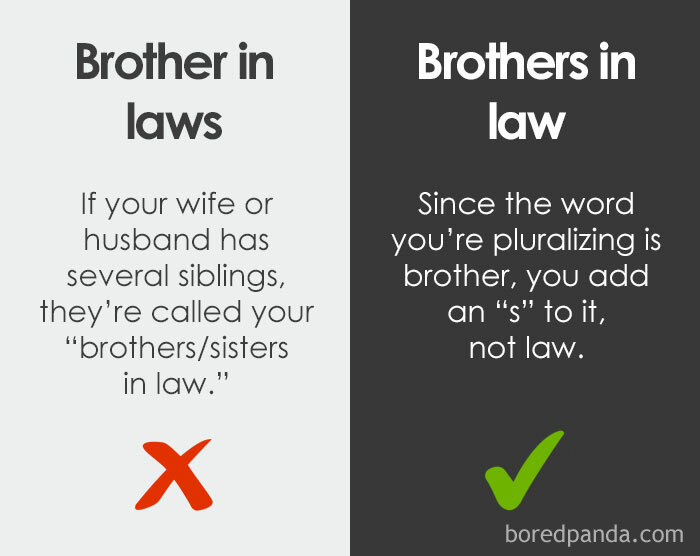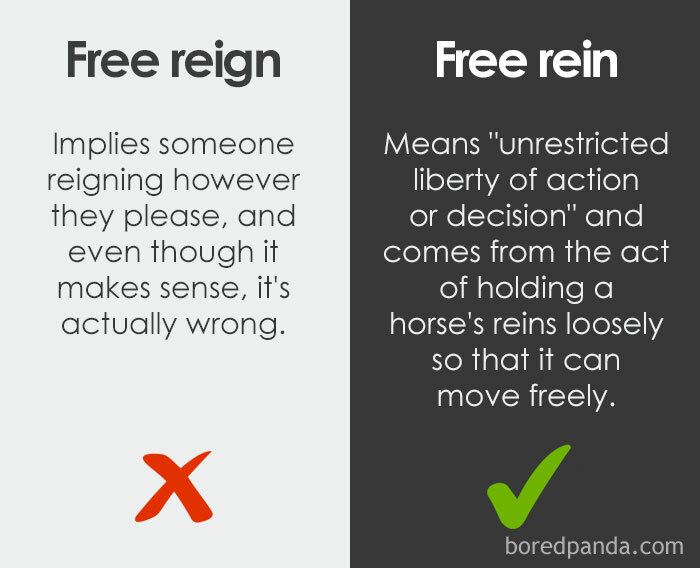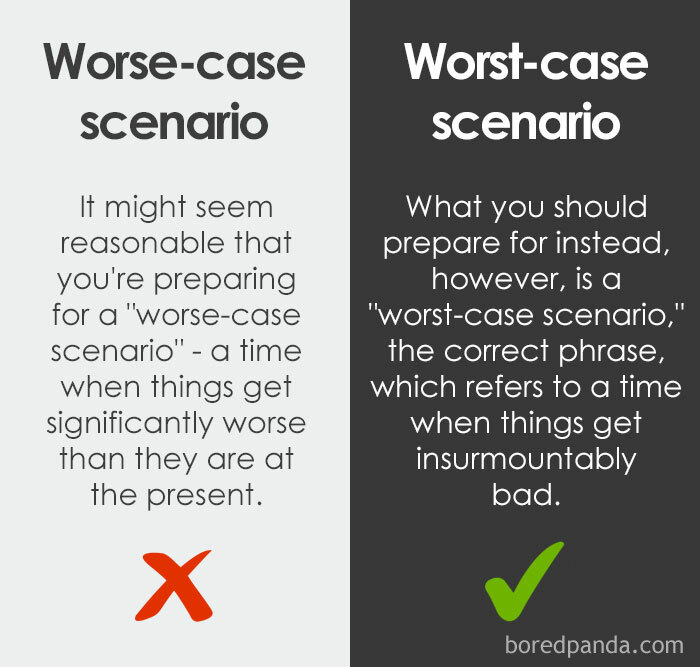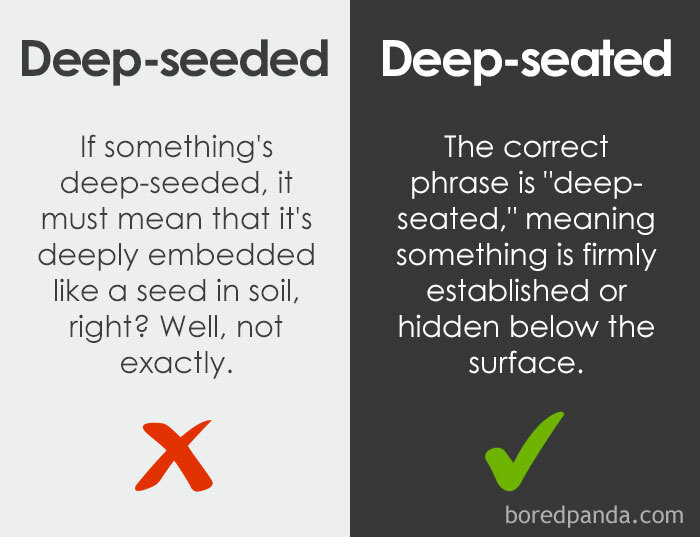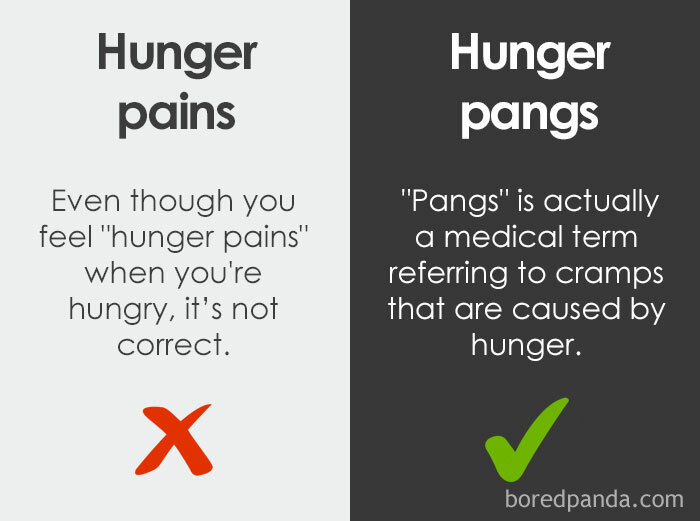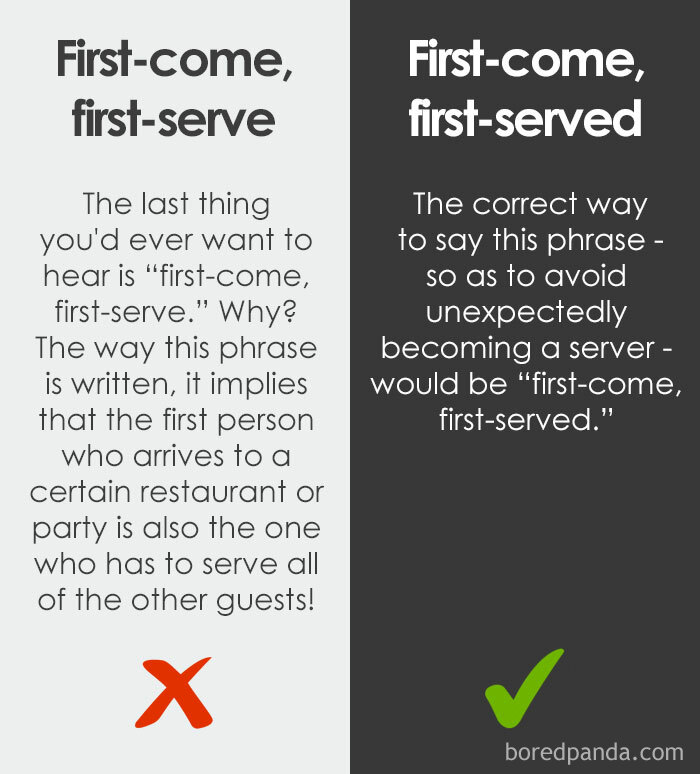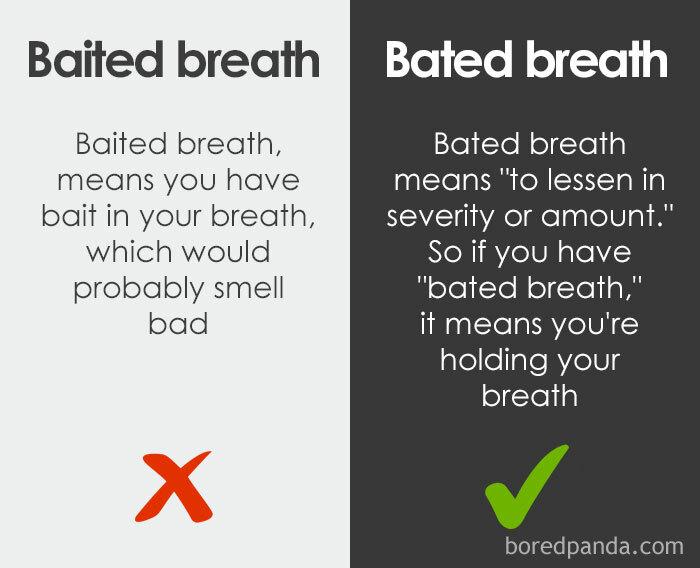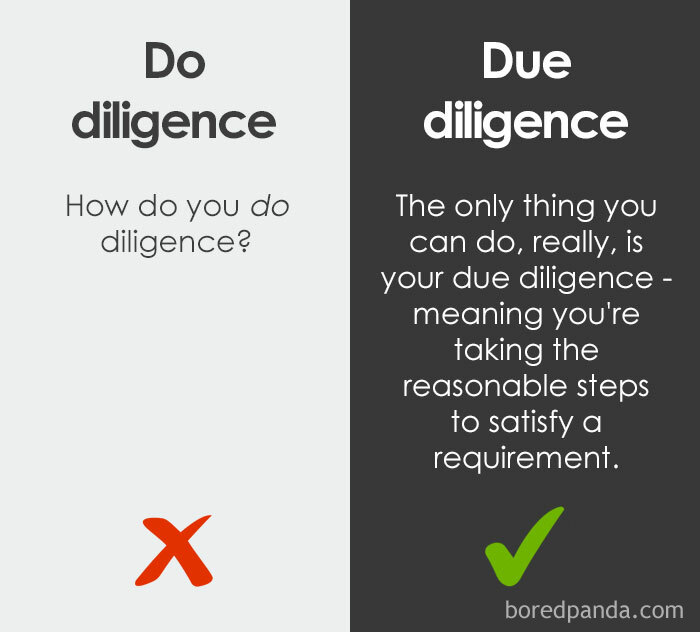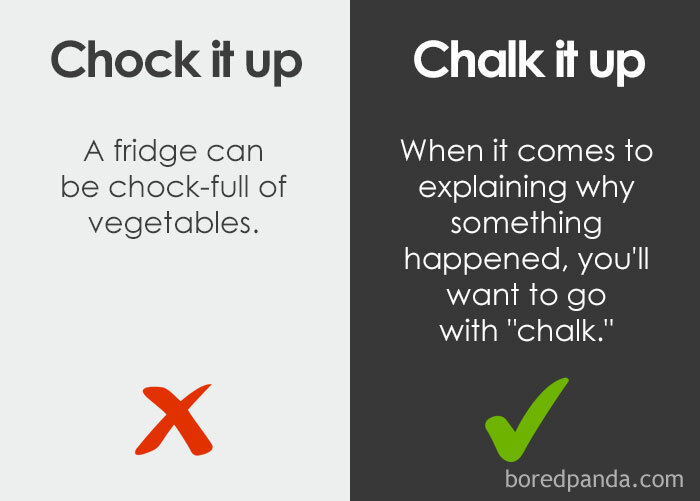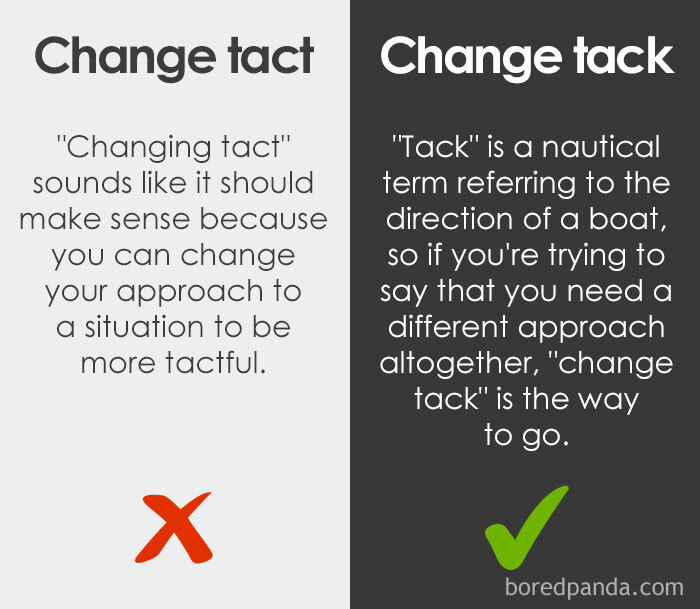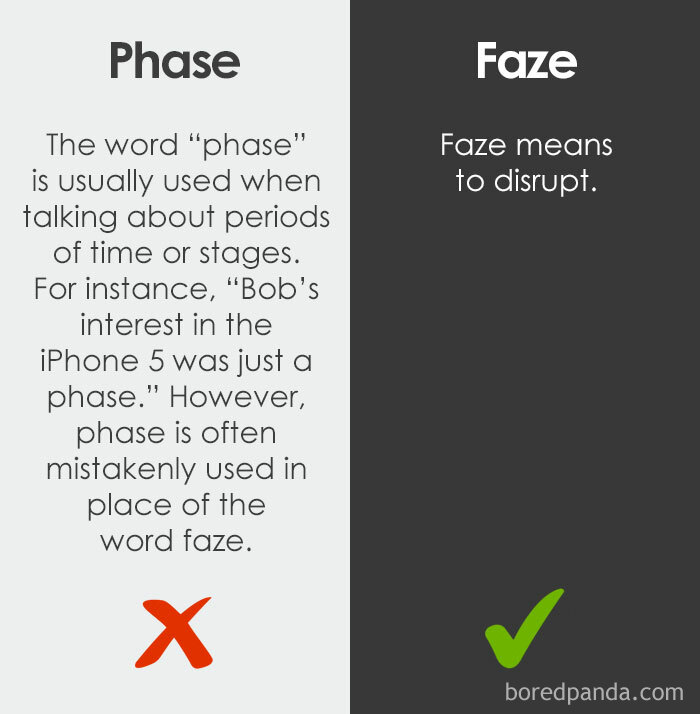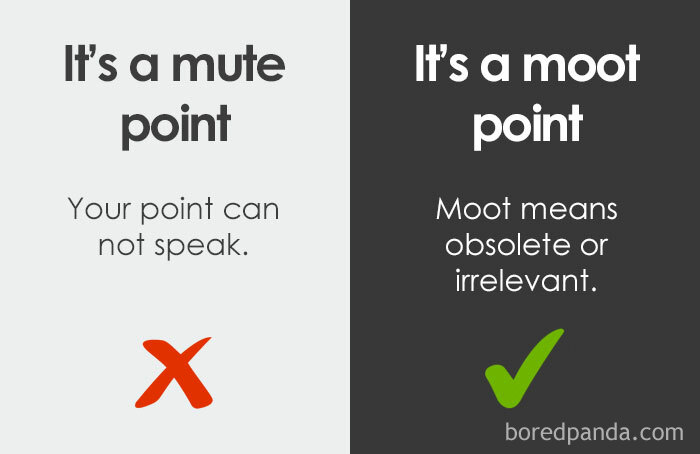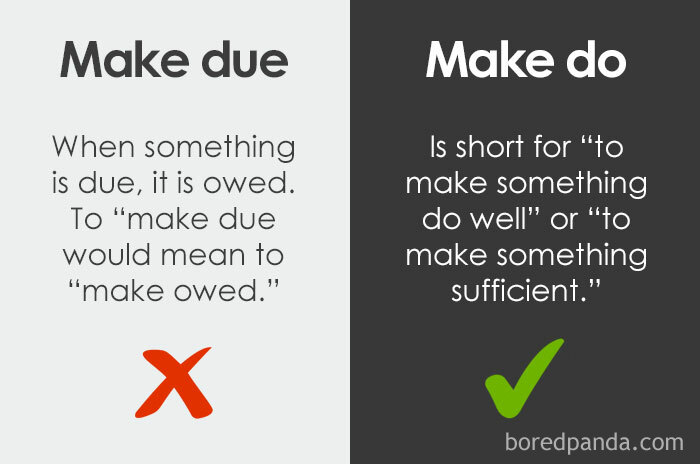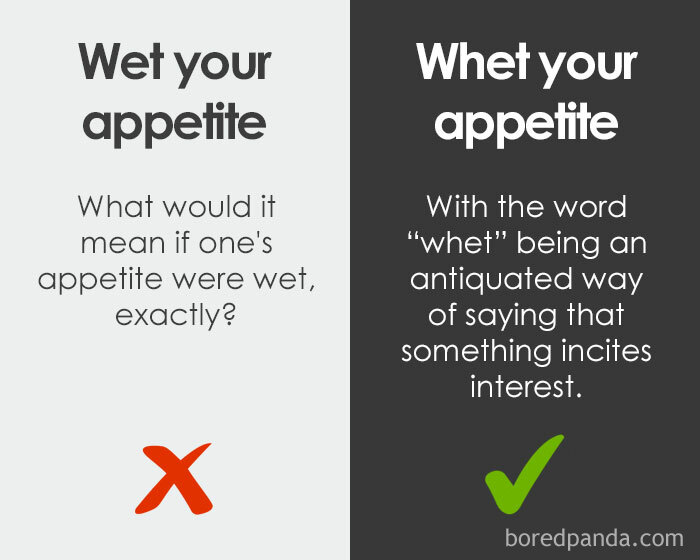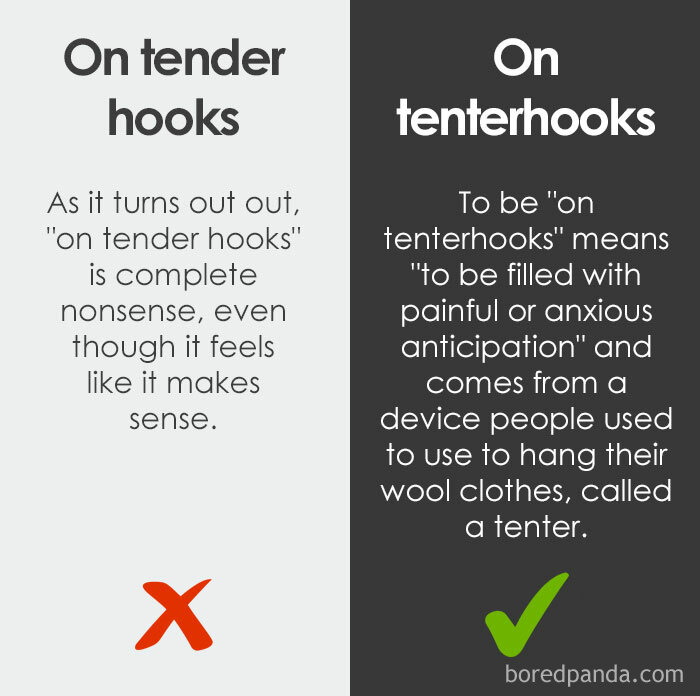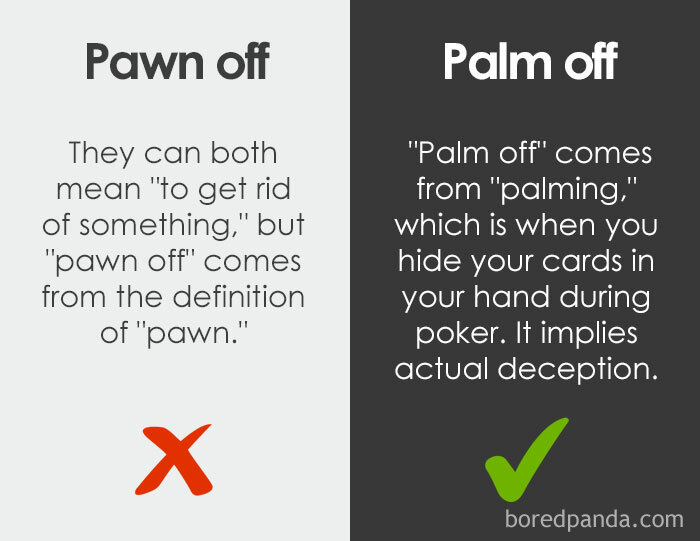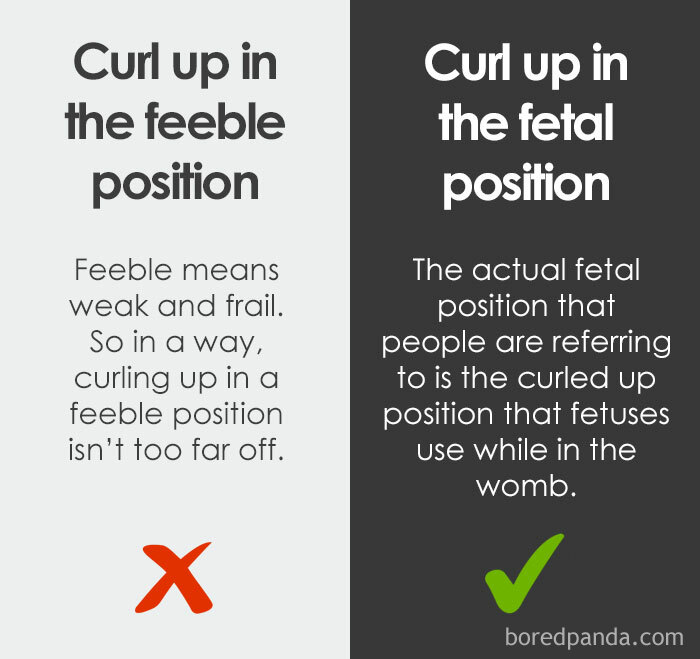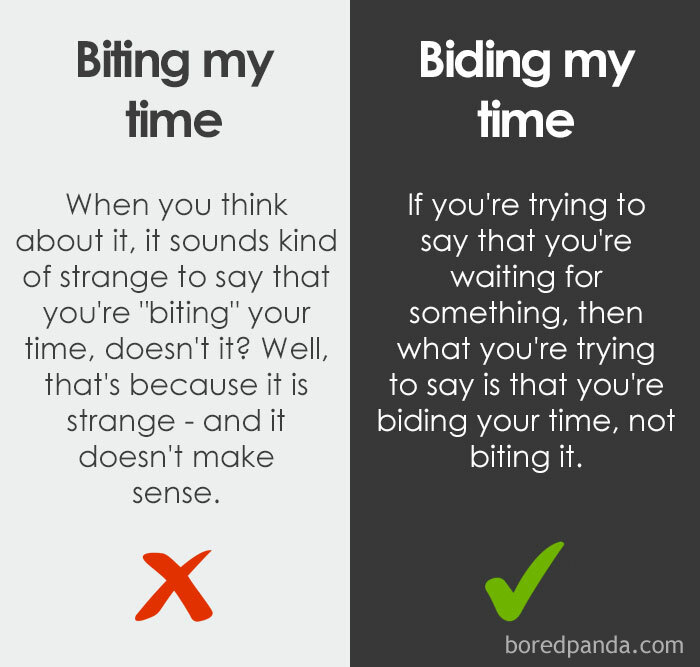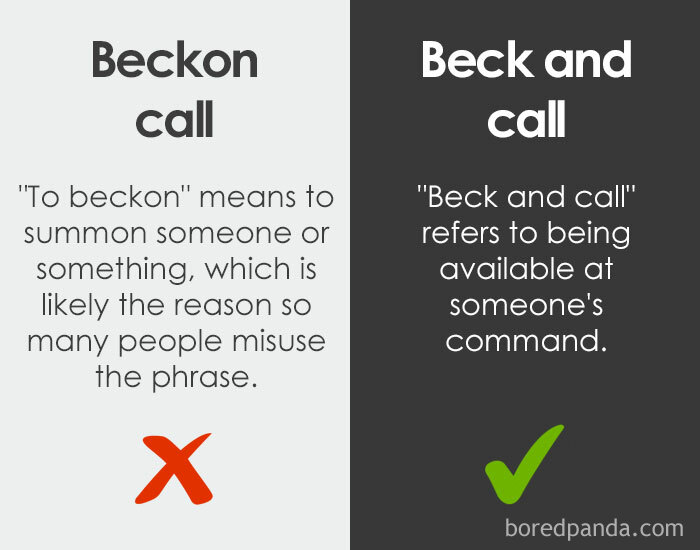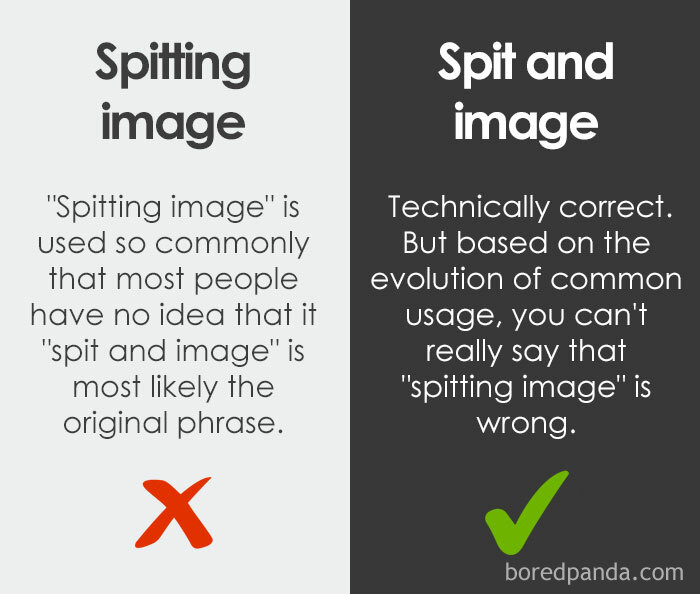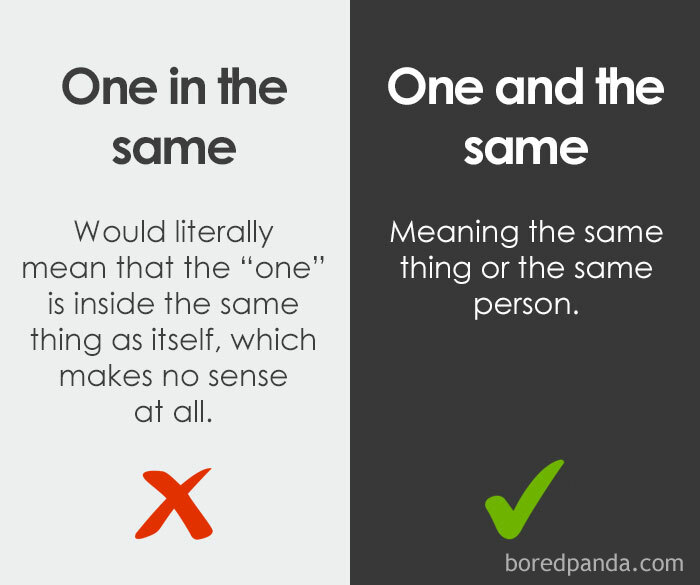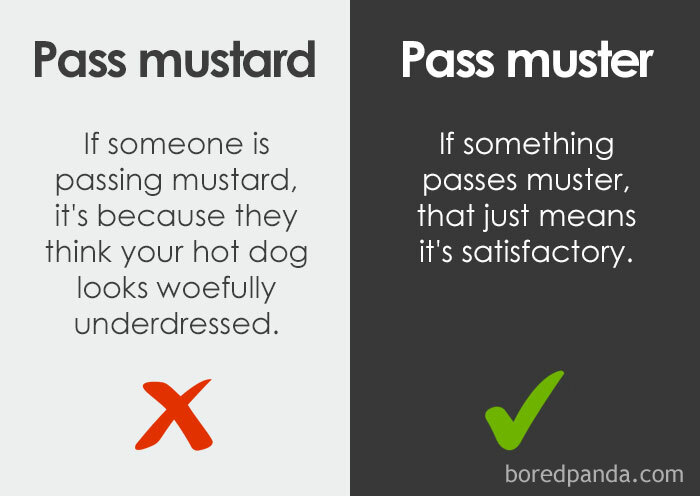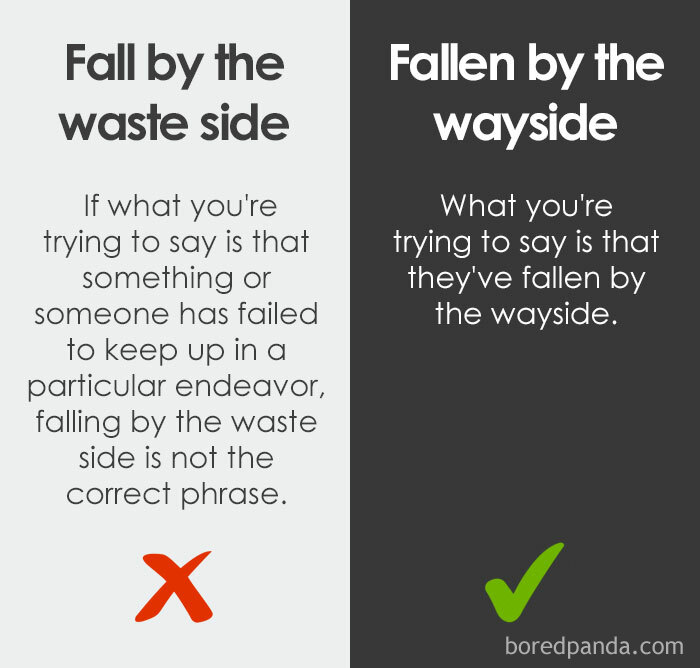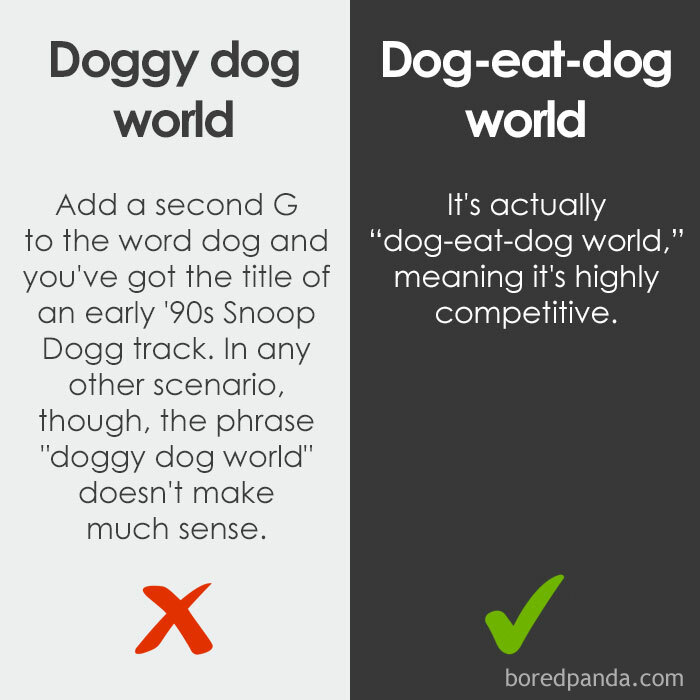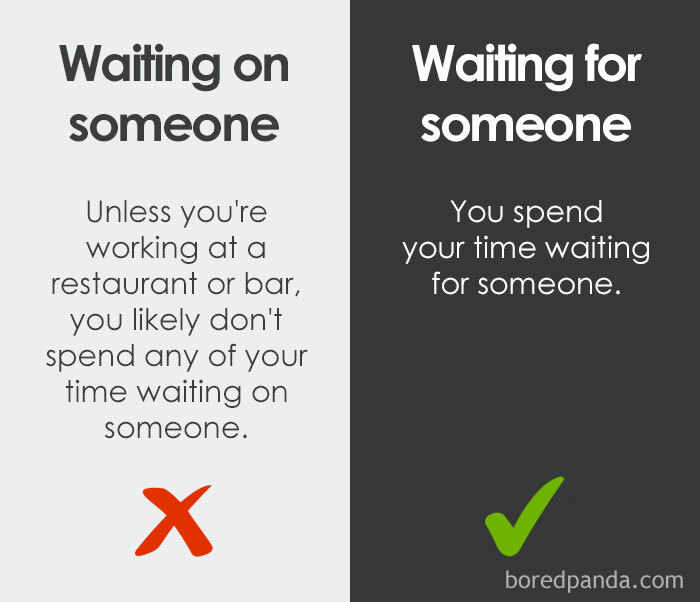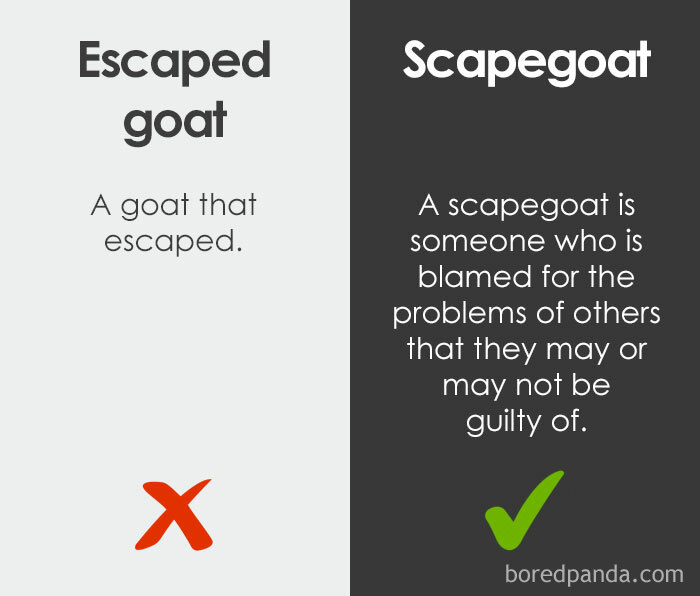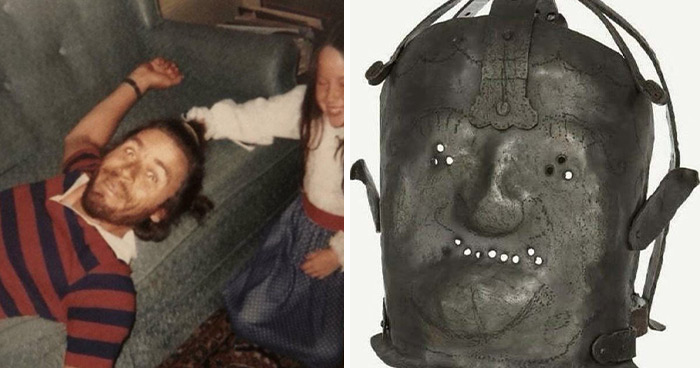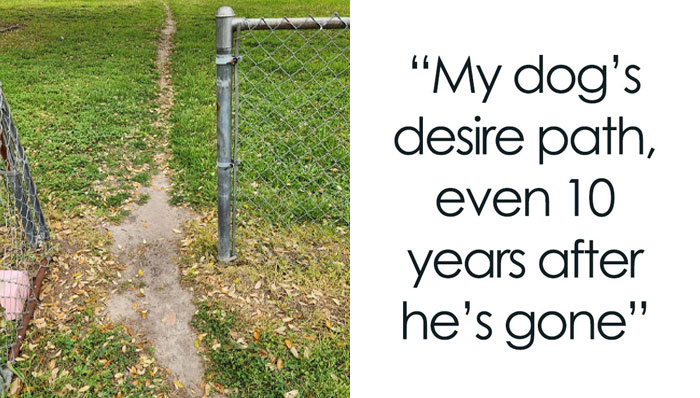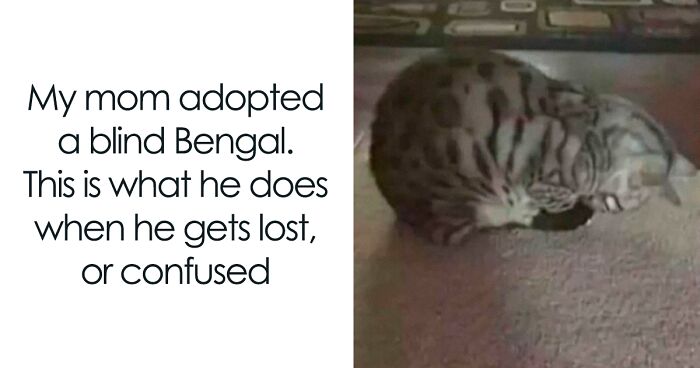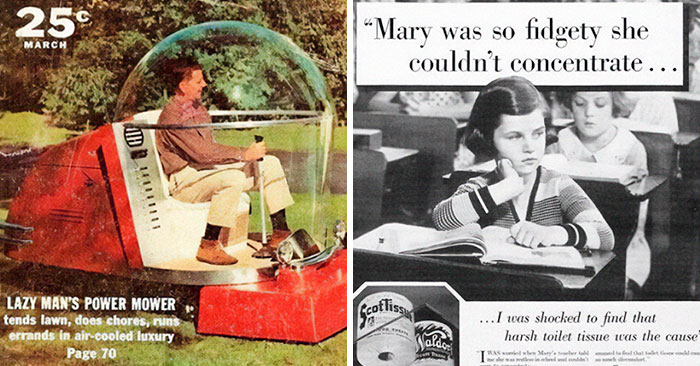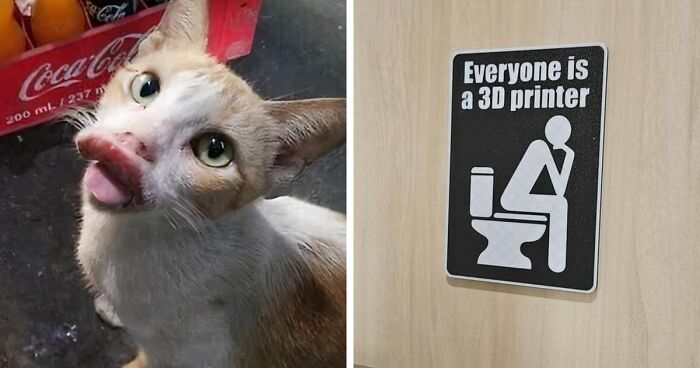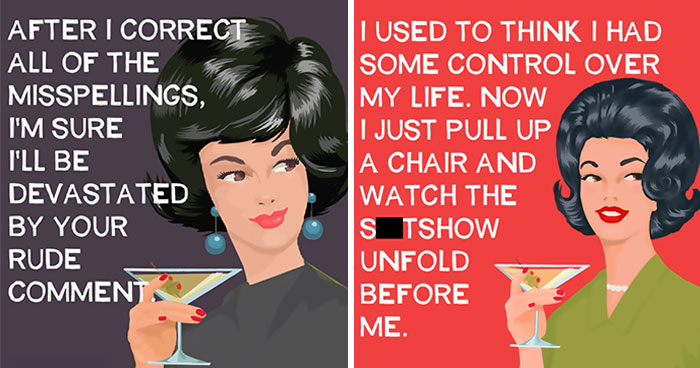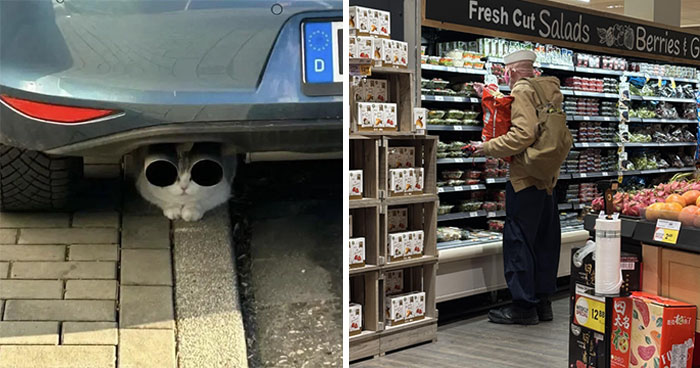No one was born perfect when it comes to language. We say one thing when we mean entirely another. We mix up words, add endings, and pretend it’s all fine. Well, not quite.
You see, even though some phrases roll off the tip of the tongue as if they were almost identical, it doesn’t mean they are. From hunger pains to hunger pangs and sleight of hand to slight of hand, there are too many common phrases that are way more confusing than they really should be.
So this time, we’re gonna look at the most common mistakes we make when using these phrases, and hopefully, learn something that would have made our English teachers proud.
This post may include affiliate links.
This is an Americanism. I've literally never heard anyone say it here in the UK.
We all have that one phrase or two (or too many) that pop into the conversations we have with people. These go-to expressions surely add some style to whatever we’re saying unless they’re used the wrong way.
But the more we use them, the more unaware we become of these repetitive language slip-ups. And honestly, our interlocutors are often unaware of the fact as well. Think of how many times you've heard someone say “I could care less.” In fact, this means the exact opposite as meant by the right usage “I couldn’t care less.”
Other common phrases people confuse very often are “tongue and cheek” (should be tongue in cheek), “for all intensive purposes” (should be “for all intents and purposes”), “another thing coming” (the right way is “another think coming.”)
The word "buck" refers to a male native american indian. The phrase "buck naked" comes from the fact that back in the early days (pre 1900) male indians would be seen riding their horses to a river or stream to bathe or do what ever, and would be totally naked on the horse. White people would see them and thus the phrase "Buck naked" was born.
Finally. Thank you. AMEN. English isn't my family's first language on one side, and I've spent a lifetime explaining these things. I feel so happy I'm not alone....
Even though the misused phrases may be annoying to some sharp-eared listeners, they are never harmful or intentional.
But there are some common phrases that can never work in any conversation and they can definitely turn your encounter sour. For example, saying “you look good for your age,” “this might sound stupid, but…” or “you’re so…” this and that, can be interpreted in a bad way.
So in the end, it’s never really about language and grammar, but rather the content and the way you say it that really matters in a fruitful and pleasant conversation.
Ever see my mom after an espresso? EXpresso ain't a bad description...
The term has nothing to do with the Scotts. It comes from old Scandinavian 'skatt fri', which means 'tax free'.
We tend to refer to people as Expats, as expatriate sounds more like the action of doing it, as in repatriate, meaning to take someone back to their homeland.
This one is misleading though because they are pronounced the same way. If you're saying them at least.
Gets confusing when you get possessive. My brother-in-law's car is the car belonging to my brother-in-law, but what would you say for all the cars belonging to multiple brothers-in-law? My brothers-in-law's cars?
A lot of people online seem to be unable to correctly use superlatives.
Pangs is archaic, but yes, that's the conventional usage. Frankly, I've been hungry enough to hurt. It is not a pang. It was pain.
Actually the Lee side of a sailboat is the downwind side. Opposite of windward. Depending on the boat and its keel and the exact angle of the wind, it will crab or be pushed sideways a bit, especially when close-hauled. So you need to aim a bit to windward to allow for leeway in order to go straight. Especially important when going toward another boat or around a headland that is on a lee shore. Even more important if your boat doesn't tack well or sail to windward, eg. A square rigger caught between 2 headlands. Extra leeway is required to prevent being wrecked.
In Greece we say "one is worse than the other" when everything is bad and you can't tell which is worse
I once got a book out the library where the editor hadn’t caught this mistake and one of the people who had the book before me crossed out “phase” and wrote “faze”.
No it doesn't. The OED says: 1. Originally in Law, of a case, issue, etc.: proposed for discussion at a moot (moot n.1 4). Later also gen.: open to argument, debatable; uncertain, doubtful; unable to be firmly resolved. Frequently in moot case, moot point.
This is part of the phrase "make do and mend", meaning things are used in their current state or you mend them only sufficiently to make them work, nothing is replaced by new - usually used in reference to being poor.
And the hooks on a tenter are literally tenterhooks. There don't seem to be any phrases for teasels, but they are the seedheads of plant that were used to tease the wool. Together they form the coat of arms for Kendal, which is a town in Northern England which once had a thriving wool trade.
'Spitting image' is in the Oxford Dictionary. It's correct even if 'spit and image' is the original usage.
Who in the name of all that's holy ever said "Pass mustard" except at a cookout?
People I would like to introduce you to the google ngram search for "escape goat" https://books.google.com/ngrams/graph?content=escape+goat&year_start=1800&year_end=2019&corpus=26&smoothing=3&direct_url=t1%3B%2Cescape%20goat%3B%2Cc0#t1%3B%2Cescape%20goat%3B%2Cc1 proving that "escape goat" appears in a disturbingly high number of published works particularly around the 2013-2014 mark the implication being that it is used a lot more widely than you might think
It being used instead of sympathy when people don't understand but are sorry for the person's plight.
Load More Replies...'Fine-toothed comb' is often used incorrectly as a 'fine tooth comb' or even as 'tooth comb'
Oh, yes. That one is irritating. I see it in published novels and wonder who the hell was editing. Grrrr 🤬
Load More Replies...I love good grammar. Can’t help but cringe when words are used incorrectly.
I completely agree. https://photos.app.goo.gl/brzaVqwtnhEohecb6
Load More Replies...It being used instead of sympathy when people don't understand but are sorry for the person's plight.
Load More Replies...'Fine-toothed comb' is often used incorrectly as a 'fine tooth comb' or even as 'tooth comb'
Oh, yes. That one is irritating. I see it in published novels and wonder who the hell was editing. Grrrr 🤬
Load More Replies...I love good grammar. Can’t help but cringe when words are used incorrectly.
I completely agree. https://photos.app.goo.gl/brzaVqwtnhEohecb6
Load More Replies...
 Dark Mode
Dark Mode 

 No fees, cancel anytime
No fees, cancel anytime 




